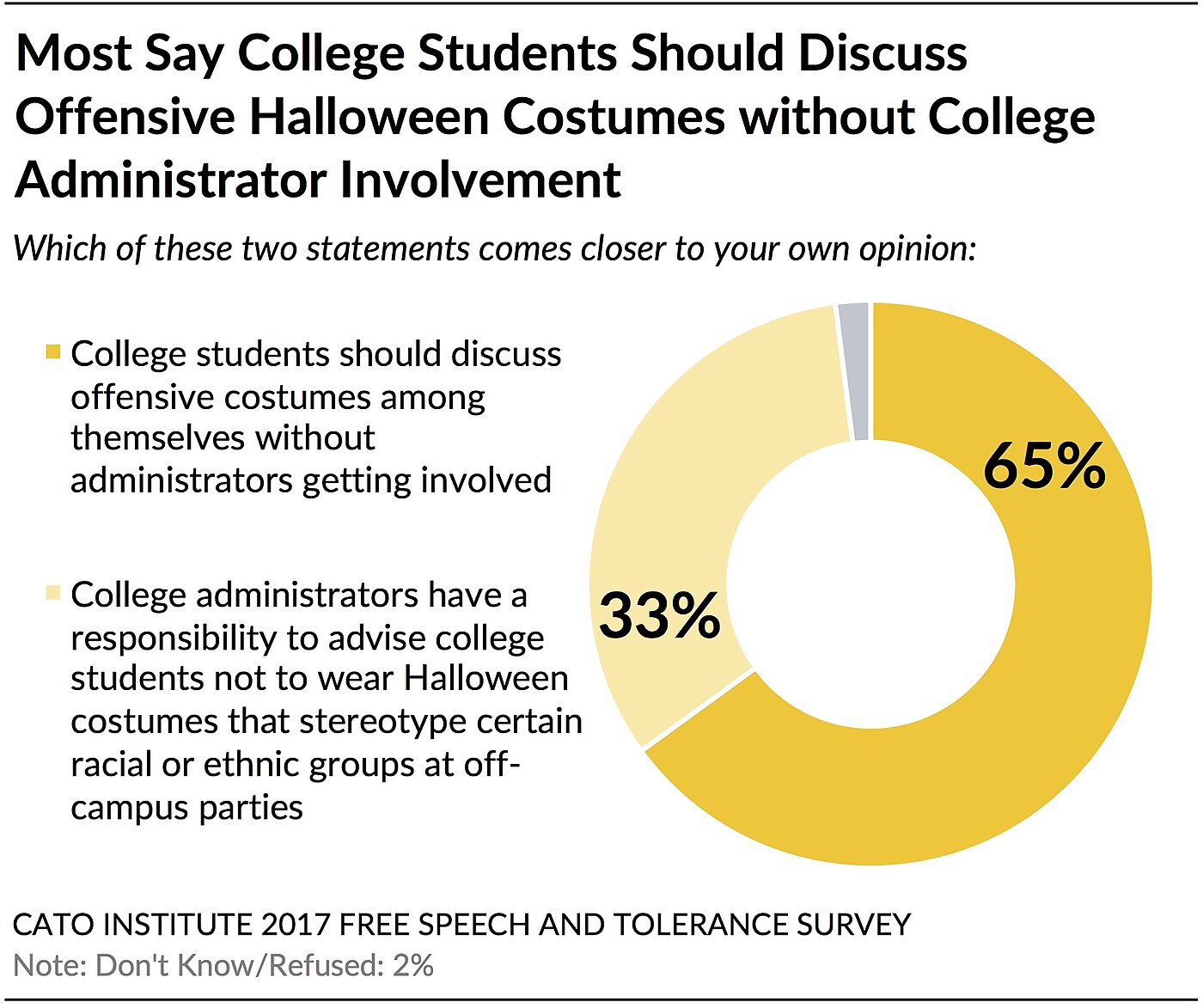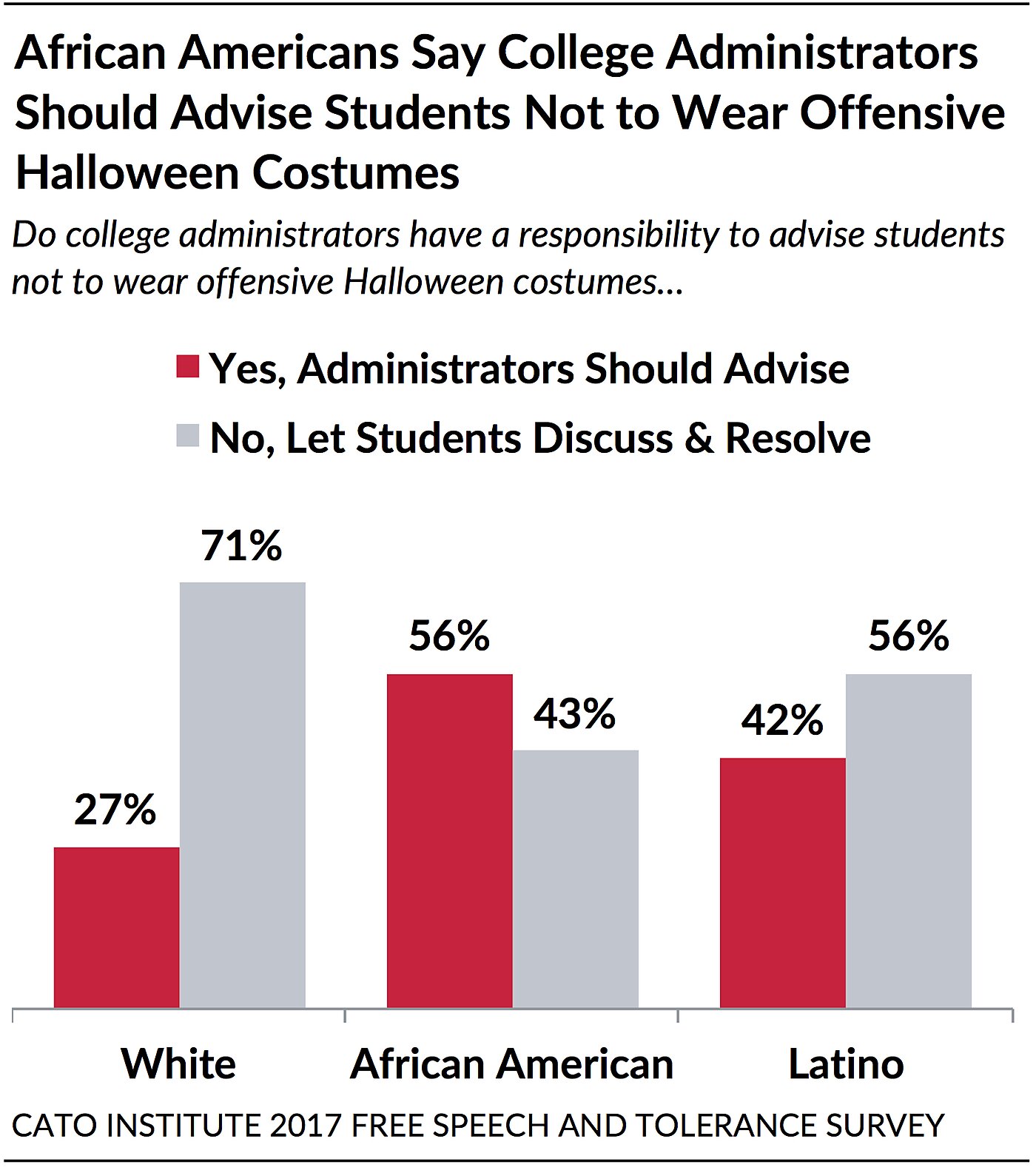Two years ago at Yale, a controversy erupted over a series of emails about offensive Halloween costumes. A resident advisor and Yale lecturer pushed back against an email from college administrators advising students not to wear offensive Halloween costumes. The advisor emailed her students and expressed confidence in students’ capacity to discuss offensive Halloween costumes among themselves without administrators getting involved. Many students interpreted her email as an endorsement of offensive costumes, rather than of freedom of expression and the ability of people to discuss and resolve offense without oversight. What do Americans think?
The newly released Cato 2017 Free Speech and Tolerance Survey finds that nearly two-thirds (65%) of Americans agree that “college students should discuss offensive costumes among themselves without administrators getting involved.” A third (33%) say “college administrators have a responsibility to advise college students not to wear Halloween costumes that stereotype certain racial or ethnic groups at off-campus parties.”
Full survey results and report found here.
A significant racial divide emerges about how to handle offensive Halloween costumes. A majority (56%) of African Americans feel college administrators should intervene and advise students against offensive costumes. Conversely, a strong majority (71%) of white Americans and a majority of Latinos (56%) believe that college students should discuss offensive Halloween costumes among themselves without administrator intervention.
A majority (54%) of college and graduate students agree that students should discuss offensive costumes without intervention from school authorities. However, students (45%) are 12 points more supportive than Americans overall (33%) of administrators advising about offensive costumes.
You can learn more about public attitudes about free speech, campus speech, and tolerance of political expression from the full survey report found here.
Sign up here to receive forthcoming Cato Institute survey reports
The Cato Institute 2017 Free Speech and Tolerance Survey was designed and conducted by the Cato Institute in collaboration with YouGov. YouGov collected responses online August 15–23, 2017 from a national sample of 2,300 Americans 18 years of age and older. The margin of error for the survey is +/- 3.00 percentage points at the 95% level of confidence.



